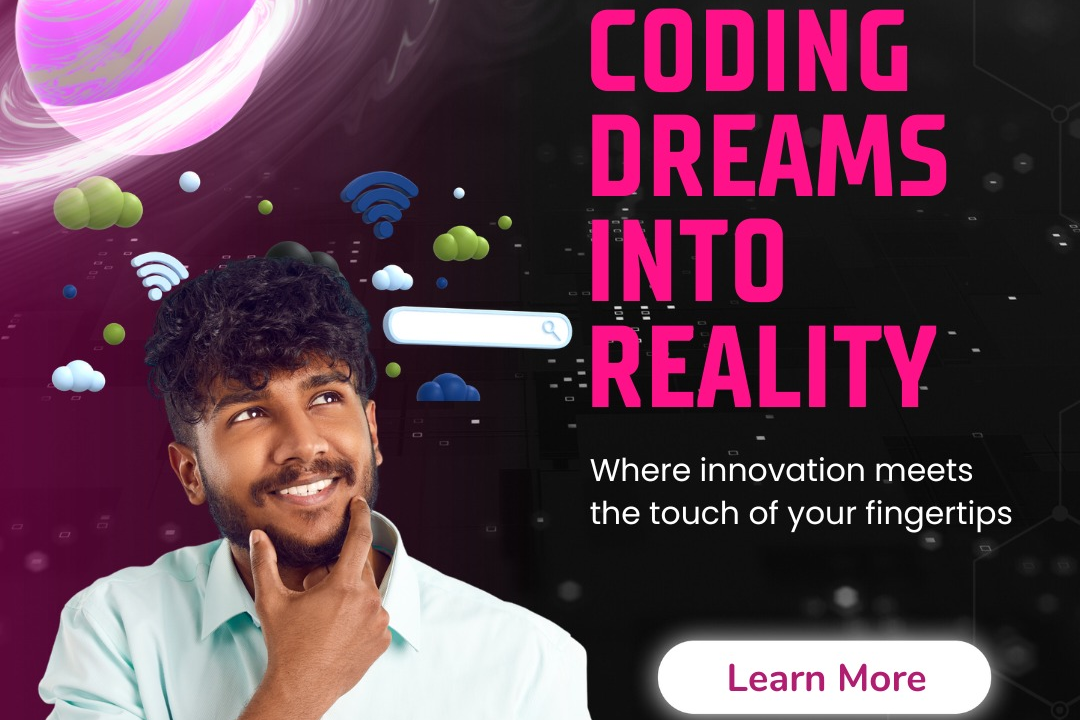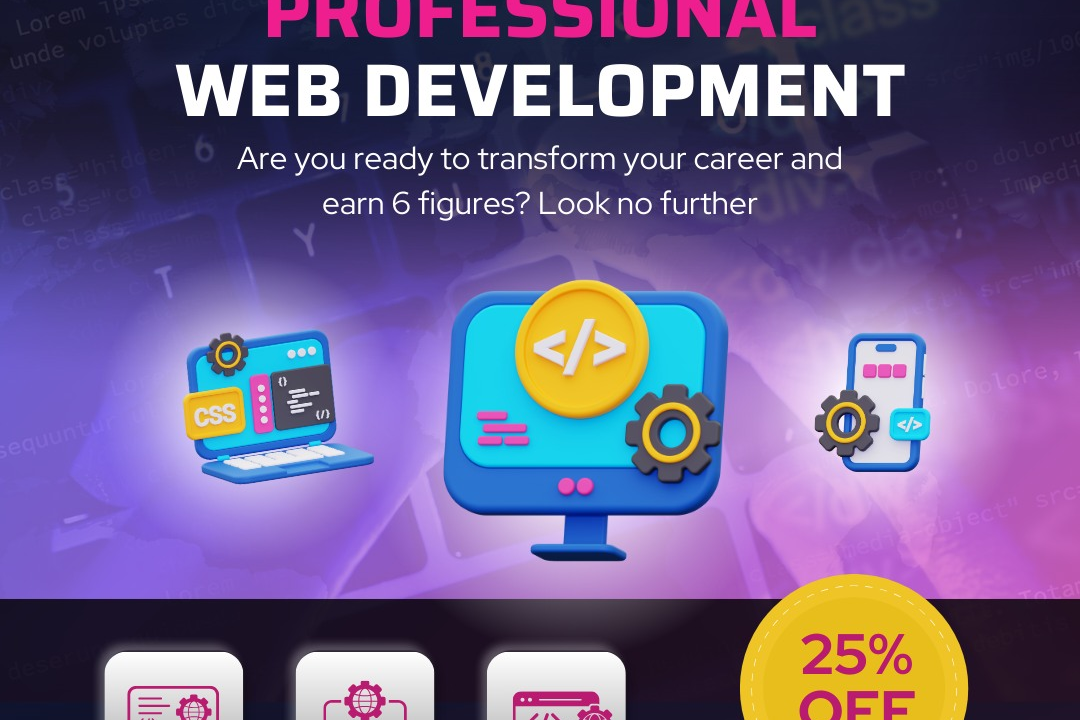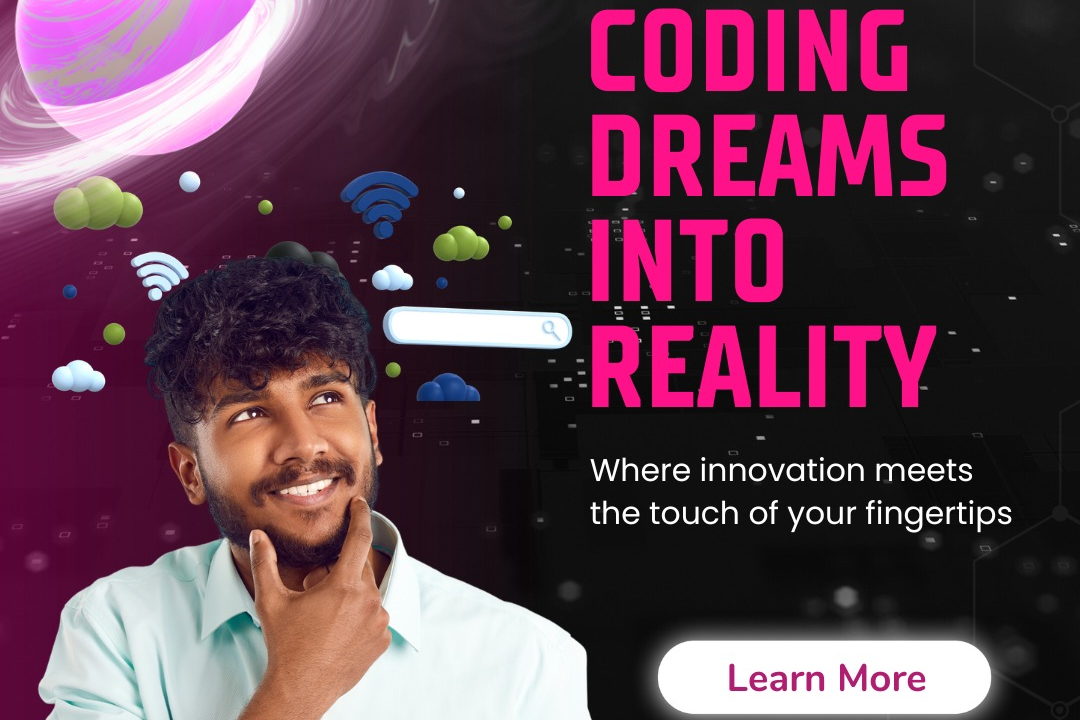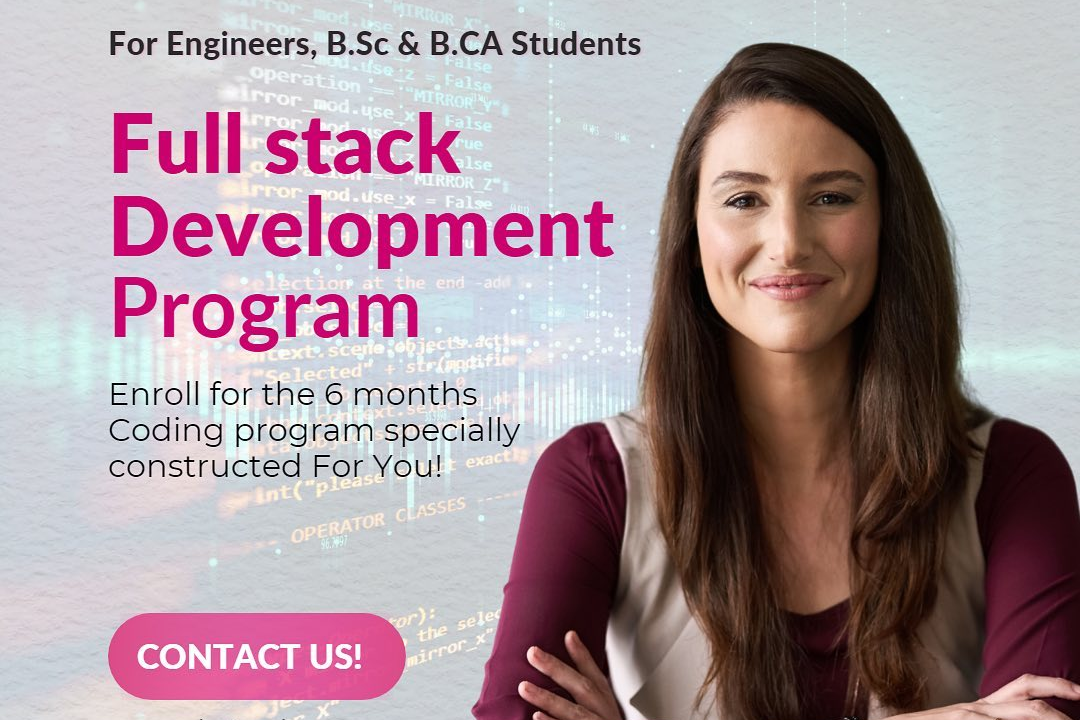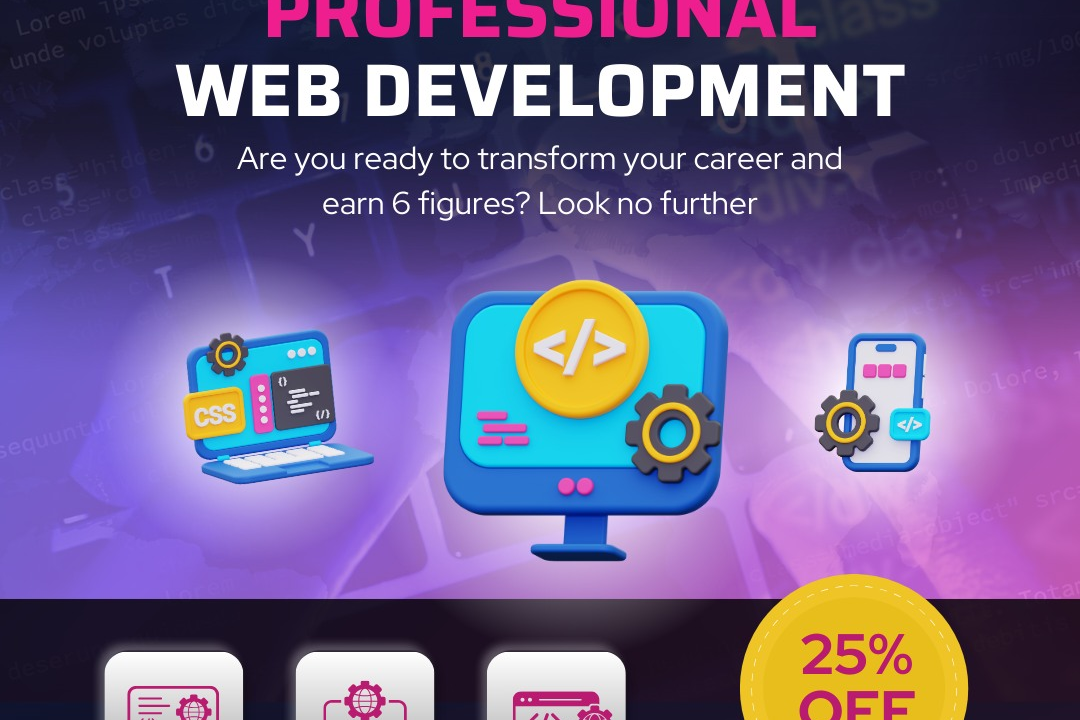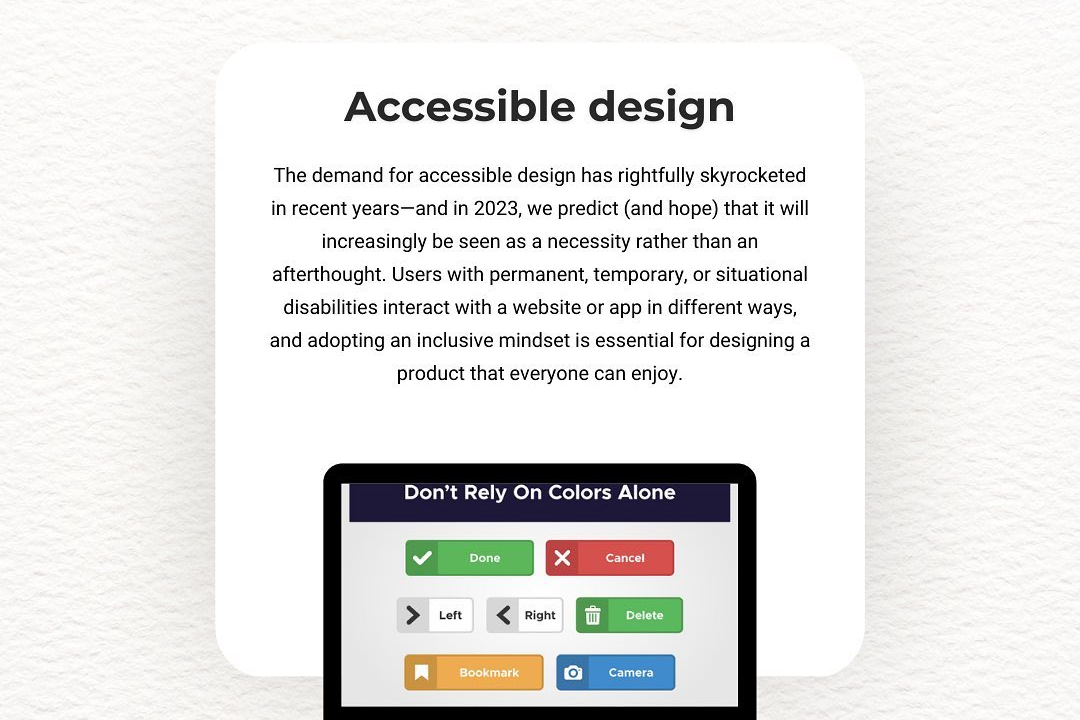Core Php Programming Tutorial
The Core PHP Programming Tutorial is a foundational course designed to teach individuals the essenti
Core Php Programming Tutorial
The Core PHP Programming Tutorial is an invaluable resource for anyone looking to master the fundamentals of PHP, a widely-used scripting language for web development. This tutorial guides learners through essential concepts such as syntax, data types, control structures, and functions, empowering them to build dynamic and interactive web applications. By engaging in real-time projects, participants gain practical experience that enhances their coding skills and prepares them for real-world challenges in web development. Whether you are a beginner or an experienced developer looking to sharpen your skills, this tutorial serves as a critical building block for a successful career in technology.
To Download Our Brochure: https://www.justacademy.co/download-brochure-for-free
Message us for more information: +91 9987184296
The Core PHP Programming Tutorial is an invaluable resource for anyone looking to master the fundamentals of PHP, a widely used scripting language for web development. This tutorial guides learners through essential concepts such as syntax, data types, control structures, and functions, empowering them to build dynamic and interactive web applications. By engaging in real time projects, participants gain practical experience that enhances their coding skills and prepares them for real world challenges in web development. Whether you are a beginner or an experienced developer looking to sharpen your skills, this tutorial serves as a critical building block for a successful career in technology.
Course Overview
The Core PHP Programming Tutorial is designed to equip learners with a solid foundation in PHP, the powerful server-side scripting language widely used for web development. This comprehensive course covers essential topics including PHP syntax, data types, arrays, control structures, functions, and error handling, enabling participants to write efficient and effective code. Through hands-on projects and real-world applications, learners will gain practical experience that reinforces their understanding and prepares them for challenges in the tech industry. By the end of the course, participants will have the skills and confidence needed to develop dynamic web applications and pursue further opportunities in programming.
Course Description
The Core PHP Programming Tutorial is an immersive course designed for individuals looking to master the fundamentals of PHP, one of the most popular server-side scripting languages for web development. This tutorial covers essential concepts including PHP syntax, data types, arrays, control structures, functions, and error handling, providing a comprehensive understanding of how to write robust and efficient code. Participants will engage in hands-on projects that simulate real-world applications, allowing them to apply their knowledge practically. By the end of the course, learners will not only grasp the core principles of PHP but also be prepared to develop dynamic, interactive websites and web applications, making them well-equipped for careers in technology.
Key Features
1 - Comprehensive Tool Coverage: Provides hands-on training with a range of industry-standard testing tools, including Selenium, JIRA, LoadRunner, and TestRail.
2) Practical Exercises: Features real-world exercises and case studies to apply tools in various testing scenarios.
3) Interactive Learning: Includes interactive sessions with industry experts for personalized feedback and guidance.
4) Detailed Tutorials: Offers extensive tutorials and documentation on tool functionalities and best practices.
5) Advanced Techniques: Covers both fundamental and advanced techniques for using testing tools effectively.
6) Data Visualization: Integrates tools for visualizing test metrics and results, enhancing data interpretation and decision-making.
7) Tool Integration: Teaches how to integrate testing tools into the software development lifecycle for streamlined workflows.
8) Project-Based Learning: Focuses on project-based learning to build practical skills and create a portfolio of completed tasks.
9) Career Support: Provides resources and support for applying learned skills to real-world job scenarios, including resume building and interview preparation.
10) Up-to-Date Content: Ensures that course materials reflect the latest industry standards and tool updates.
Benefits of taking our course
Functional Tools
1 - PHP Interpreter
The PHP interpreter is the core tool used in this course, allowing students to execute and test their PHP code in real time. It translates written PHP scripts into executable code that can run on a web server. Students will learn how to install and configure PHP on various operating systems, enabling them to set up a local development environment that mimics a production server. Understanding the interpreter's functionality is crucial for debugging and optimizing code while providing insight into how PHP processes requests and responds to client browsers.
2) Text Editors and IDEs
A variety of text editors and Integrated Development Environments (IDEs) are utilized throughout the course, such as Visual Studio Code, PHPStorm, and Sublime Text. These tools provide essential features like syntax highlighting, code completion, and debugging capabilities, which enhance the coding experience. Students will explore how to customize these environments to streamline their workflow, making code writing more efficient and less error prone. Learning to navigate these tools effectively equips students with the skills to work in different development settings.
3) MySQL Database
MySQL is employed as the relational database management system (RDBMS) for this course, enabling students to handle data storage and retrieval with ease. Students will learn how to design databases, create tables, and perform CRUD operations using SQL queries. Practical assignments will focus on connecting PHP scripts to the MySQL database to create dynamic web applications. This integration reinforces the significance of databases in web development, allowing students to manage data effectively within their applications.
4) XAMPP/WAMP Server
XAMPP and WAMP are used as development environments throughout the course, providing the necessary components to run PHP applications locally. These software bundles include Apache (web server), MySQL (database), and PHP (scripting language), simplifying the setup process for students. By using XAMPP or WAMP, learners can quickly create a testing ground for their projects, experimenting with web applications without the need for a live server. Understanding how to configure and use these tools is fundamental for any aspiring PHP developer.
5) Version Control Systems (Git)
Version control systems, particularly Git, are integral to the development process taught in this course. Students will learn to use Git for tracking changes in their codebase, collaborating with others, and managing different versions of their work. Through hands on experience, students will understand the importance of using repositories like GitHub for sharing projects and collaborating with fellow developers, which is an essential skill in professional environments. Mastery of Git enhances students' ability to maintain code integrity throughout the development lifecycle.
6) Debugging Tools
Debugging tools such as Xdebug and built in PHP error reporting features are covered in the course to help students learn efficient troubleshooting methods. Xdebug allows developers to step through code, inspect variable states, and trace errors, providing valuable insights into application behavior. By utilizing these debugging tools, students will develop problem solving skills that are crucial for identifying and resolving issues within their code. Gaining proficiency with debugging practices prepares learners for real world development challenges, ensuring they can maintain high quality, bug free applications.
7) Frameworks (Laravel, CodeIgniter)
The course introduces popular PHP frameworks like Laravel and CodeIgniter, which streamline the development process and enforce best practices. Students will explore the architecture of these frameworks, learning how to utilize built in features such as routing, ORM (Object Relational Mapping), and templating engines. By diving into frameworks, learners will understand the benefits of using MVC (Model View Controller) design patterns, making it easier to develop scalable and maintainable applications. Real world projects utilizing these frameworks will further enhance their practical experience.
8) RESTful APIs
Understanding and developing RESTful APIs is a key component of the course. Students will learn how to create and consume APIs using PHP, gaining insights into the principles of REST architecture. This knowledge allows them to build applications that can communicate with other services and platforms, fostering a deeper understanding of how modern web applications interact. By leveraging RESTful principles, students will learn to create robust and flexible systems that can easily integrate with external data sources.
9) Composer Dependency Management
Composer is introduced as a dependency management tool for PHP projects, enabling students to manage libraries and packages efficiently. The course will cover how to install Composer, create a `composer.json` file, and use it to include external libraries in their projects. Understanding Composer is essential for modern PHP development, as it simplifies the process of handling dependencies and ensures that projects are built on stable, up to date components.
10) Testing and Quality Assurance
The significance of testing in software development is emphasized in the course, with particular focus on PHPUnit for unit testing in PHP applications. Students will learn how to write test cases, perform unit tests, and conduct integration tests to ensure the reliability of their code. By incorporating testing practices into their development pipeline, learners will be able to deliver higher quality applications with fewer bugs, fostering a culture of quality assurance that is essential in professional environments.
11 - Front end Basics (HTML, CSS, JavaScript)
While the course focuses on PHP, achieving proficiency in the language often requires a foundational knowledge of front end technologies. Students will be introduced to HTML, CSS, and JavaScript, allowing them to understand how their PHP code interacts with these languages to create dynamic web pages. By gaining front end skills, students will learn to create seamless user experiences and fully functional applications, ensuring they are well rounded developers capable of handling both back end and front end tasks.
12) Deployment and Server Management
The course will also address deployment strategies and server management practices. Students will learn how to deploy PHP applications on various web servers, including shared hosting and cloud platforms like AWS or DigitalOcean. Topics covered will include configuring servers, setting up domains, and managing security practices. Understanding deployment processes is crucial for moving projects from development to production, ensuring students are ready to manage their applications in real world environments.
13) Project Management Tools
Familiarity with project management tools such as Trello, Jira, or Asana will be integrated into the course to teach students how to manage software development projects effectively. Students will learn how to create project plans, track progress, and maintain clear communication within teams. Mastering these tools will help learners adopt agile methodologies and improve their collaboration skills, preparing them for successful teamwork in future development projects.
14) Security Best Practices
The course will cover essential security practices for PHP development, ensuring students understand common vulnerabilities and how to mitigate them. Topics such as data validation, SQL injection protection, and secure password handling will be emphasized. Understanding security best practices is critical for safeguarding applications and user data, making this knowledge a vital aspect of the curriculum.
15) Real time Project Integration
Real time projects will be a significant part of the learning experience, allowing students to apply their knowledge to practical scenarios. By working on projects that mimic real world challenges, students will enhance their problem solving skills and gain hands on experience that solidifies their understanding of PHP development. These projects will serve as excellent portfolio pieces, demonstrating their capabilities to future employers and clients.
Browse our course links : https://www.justacademy.co/all-courses
To Join our FREE DEMO Session:
This information is sourced from JustAcademy
Contact Info:
Roshan Chaturvedi
Message us on Whatsapp: +91 9987184296
Email id: info@justacademy.co

